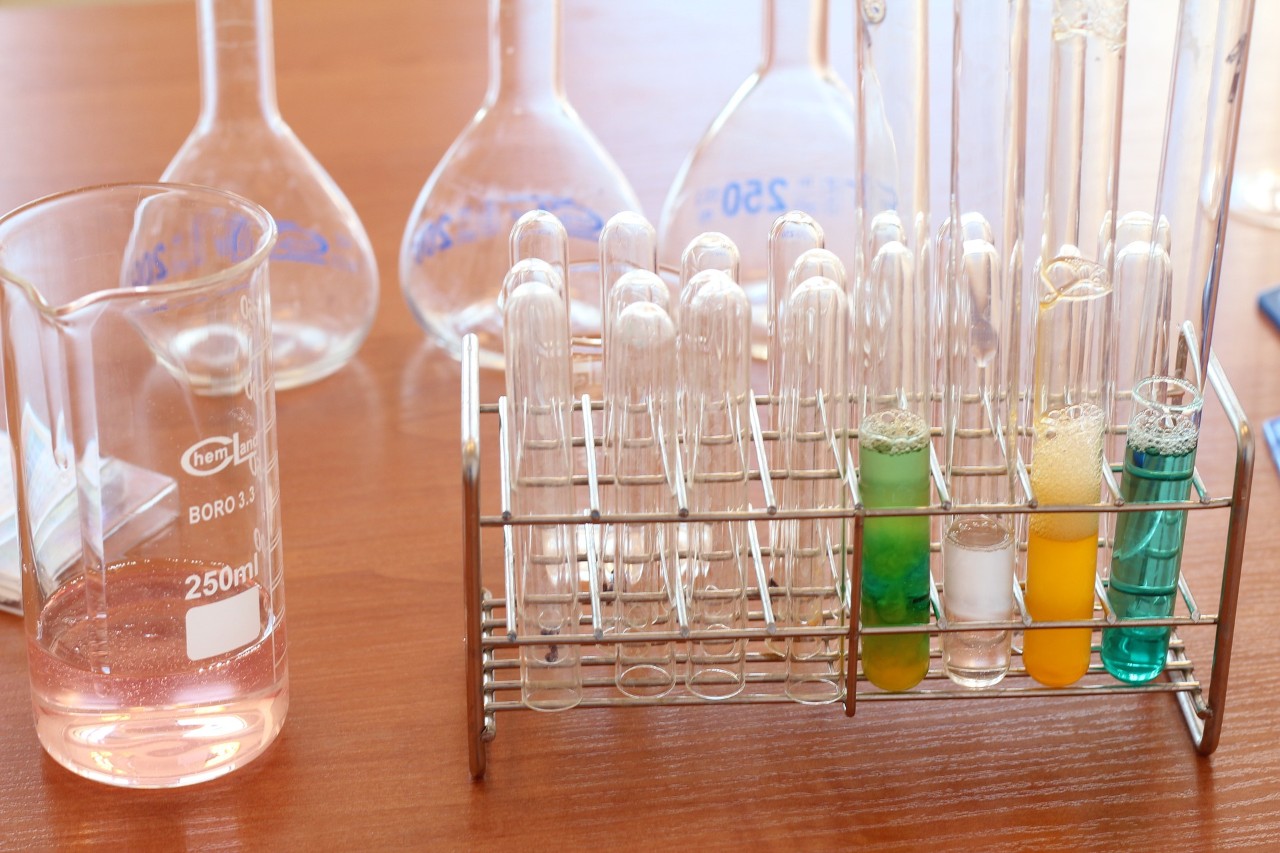
Meet the team behind startup Cinthesis, working to change the possibilities of chemical products
Meet the team behind startup Cinthesis, working to change the possibilities of chemical products
By Michelle Flanagan
Two people from the University of Cincinnati will receive a $110,000 grant from the 1819 Innovation Hub to help their chemistry startup, Cinthesis.
The team’s work is another example of innovation at UC's McMicken College of Arts and Sciences and demonstrates how the college supports its students, faculty and community.
“Cinthesis is a Cincinnati-based start-up whose goal is to develop cost-effective, high-yield approaches to chemical synthesis,” said Joel Andersen, a chemistry graduate student who will accept the grant with his professor James Mack, associate dean of the UC Graduate School and professor of chemistry.

Associate Dean James Mack
“In place of solvents, we employ mechanical force to induce reactivity," Andersen said. "This allows us to achieve unique results, and often in a more environmentally-friendly manner.”
“Overall, our goal is to reduce the cost of synthetic products and reduce the amount of chemical waste that’s produced,” Mack said.
The ability to cut both costs and waste is increasingly attractive to pharmaceutical and chemical companies and manufacturers at a time when manufacturers are trying to go green while meeting consumer demand.
Mack has been working in the research area of green chemistry, also known as sustainable chemistry, for the last 15 years. But the methods necessary to commercialize these reactions are a recent discovery.
“Joel [Andersen] joined the research team in 2014 as a graduate student and made the key discovery which allowed the previous foundation of research built by previous students to be commercialized,” Mack says.
Andersen credits UC courses in chemical kinetics/thermodynamics and physical organic chemistry for providing a foundation for this research, which helped set up the experimental design. And, of course, there are the people he’s worked with.
“My advisor, James Mack, tasked me with learning to understand and control the energetics of the system. Creativity, a child-like interest in tinkering and sound experimental controls were key to accomplishing that task,” Andersen said.

UC student Joel Andersen
Once the researchers tackled the science and technology, they had to find the right team to try to commercialize their findings.
Working through the pre-accelerator program at Venture Lab, part of the 1819 Innovation Hub, and finding the right entrepreneur-in-residence was key, Andersen said. Through these teams, they’ve found the balance to move forward.
The 1819 Innovation Hub is part of UC’s strategic direction called Next Lives Here. It’s self-described as “a place of thinking, making and doing, of discovery and delivery, for the university and its community, for the city and the world beyond. It is the one-stop destination where industry meets the university’s talent.” Its Venture Lab specifically works to activate a high density of curated startup opportunities to attract outside entrepreneurial talent as well as investors.
Next Lives Here aims to amplify UC’s core missions of teaching, research and service. This is achieved by working with faculty and students and pairing like-minded innovators together. For the Cinthesis team, that goal has been realized.
“Working with the 1819 Innovation Hub was eye-opening. For me, it was a crash course on the language and concepts of business and marketing, which helped me speak more effectively with the program’s expert entrepreneurs,” Andersen said. “Prior to my experience, I was biased toward the science and underestimated and undervalued the work required to bring a product to market in an effective manner.”
Mack agrees, saying that it helped the whole team learn about the industrial side, and made connections possible that would not have been otherwise.
“It was everything I expected and more, and I would suggest it to anyone looking to build a start-up,” he said.
Mack said the grant will help create key connections in the industry to help secure contracts from industry partners and get the startup off the ground.
Featured image at top: Laboratory implements in an experiment.
Related Stories
Love it or raze it?
February 20, 2026
An architectural magazine covered the demolition of UC's Crosley Tower.
From research to resume: Grad Career Week prepares students for career paths
February 20, 2026
Graduate students at the University of Cincinnati will explore how their academic and creative work translates into professional success during Grad Career Week, March 2–6, a week-long series of workshops, networking opportunities, and skill-building sessions hosted by the Graduate College.
Discovery Amplified expands research, teaching support across A&S
February 19, 2026
The College of Arts & Sciences is investing in a bold new vision for research, teaching and creative activity through Discovery Amplified. This initiative was launched through the Dean’s Office in August 2024, and is expanding its role as a central hub for scholarly activity and research support within the Arts & Sciences (A&S) community. Designed to serve faculty, students, and staff, the initiative aims to strengthen research productivity, foster collaboration, and enhance teaching innovation. Discovery Amplified was created to help scholars define and pursue academic goals while increasing the reach and impact of A&S research and training programs locally and globally. The unit provides tailored guidance, connects collaborators, and supports strategic partnerships that promote innovation across disciplines.
